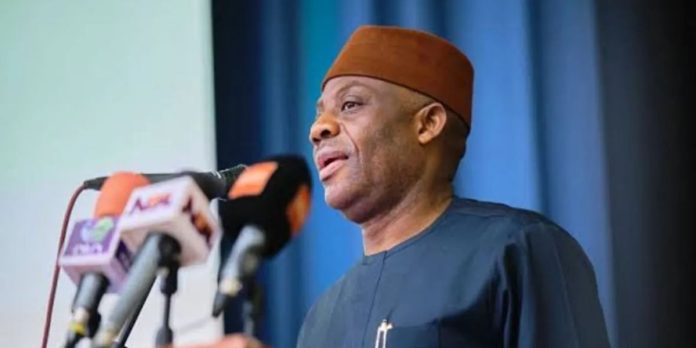In a bid to revive dwindling enrolment and safeguard the future of teacher training institutions, the Federal Government has announced that all 18 Federal Colleges of Education (COEs) will begin the concurrent running of Nigeria Certificate in Education (NCE) and bachelor’s degree programmes starting from the 2025/2026 academic session.
Minister of Education, Dr. Tunji Alausa, made this known on Tuesday during a follow-up meeting in Abuja, reviewing outcomes from the last biannual stakeholders’ conference.
This major policy shift follows the 2023 enactment of the Federal Colleges of Education Act, which empowers qualifying federal COEs, those at least ten years old, to award both NCE and degree certificates. The Act, signed into law by President Bola Ahmed Tinubu shortly after assuming office, had earlier slated the pilot implementation for the 2024/2025 session. However, the full rollout will now commence in September 2025.
Describing the reform as a “game changer,” Alausa emphasized that the dual mandate is critical for the survival of the colleges. “The only thing that can save the colleges from going into extinction is the implementation of the dual mandate,” he said. “Any federal college of education that fails to run both NCE and degree programmes concurrently will cease to exist.”
The Minister noted that the initiative, approved by the National Council on Education, aims to improve access to teacher education, address chronically low enrolment figures, and ensure the quality production of professional teachers across the nation.
According to Alausa, the sector is in dire straits. Citing data from the Joint Admissions and Matriculation Board (JAMB), he revealed that less than 1,000 candidates applied to study at Federal COEs in 2024, out of the over 2 million students who registered for the examination. “It’s a shame,” he lamented. “We have institutions lying fallow with less than 1,000 students and almost 800 staff members. That’s a failing system. A college of education should not have less than 30,000 students.”
Read also: Education minister advocates extending NYSC to two years
To prepare for the transition, the National Universities Commission (NUC) has developed guidelines for implementation, while JAMB has begun promoting the dual-mode admission process and engaging with relevant stakeholders.
Alausa assured Nigerians of the Tinubu administration’s commitment to revitalizing the education sector. “Education is pivotal to national development,” he stated. “We are determined to resolve the concerns of staff unions and ensure a smooth, uninterrupted academic calendar in our tertiary institutions.”
With this bold step, the Federal Government hopes to reposition its colleges of education as viable and attractive destinations for aspiring teachers, while stemming the tide of institutional decline.

